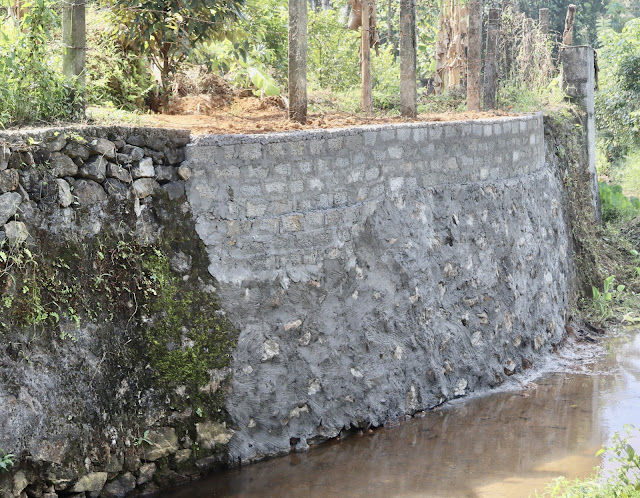It was while watching a mason rebuild a broken wall in our property, and seeing him plaster the spaces between the stones with a cement mix to stabilise the structure, I got to understand the need to 'hold' the stones to stabilise the wall. This holding of the stones makes the wall stay stronger. The earlier portion did not have this holding plaster between stones which made the wall weak leading it to collapse during the rain fall.
There are some critical matters which make a task wholesome.
I remember playing a card game with a six yer old child. It was a game of matching the colours of cards. The boy finished matching all the cards to form families of similar colours. I was nowhere near to his level. When he won the game he said, 'let us continue to play for fun till the pack of cards are all matched by picking one each time'. So we continued a second round. This time too, he finished earlier than me. The third time, I finished before him. He was still interested to 'play for the fun of it'! We continued playing for some more time. At the end of it, he turned to me and said, 'Was it not fun to play'!
I found that he had a 'holding' attitude, turning a game for leisure, fun and for being together.
This is part of the 'soft skills' we refer to in child development. To let a child experience the opportunity to interact and learn from the benefit of social interaction is lost, when children play solo or watch the visual media to occupy themselves.
Most parents give their children, opportunity to learn in a good school, offer material comforts at home, and save enough to give them a secure future.
However their conduct, character, temperament, and value stems are being formed in the early years at school. Unless regular structured interactions take place between parents, the 'filler' functions of the conversations are not available for their formative development.
The family conversation times, reading times, play times, debriefing times, outings, visiting other families, etc are the opportunities which offer the setting to engage a child in the formative process of attitude and behaviour.
I happened to watch two children in their mid-childhood years play cricket in their street, while one mother was watching their game. There was a quarrel over 'bowled out'. One child walked out ending the fun they had together. His mother's behaviour was surprising and affirming. He complemented him for bowling and batting well. She whispered in his ear something following which he returned to resume the game.
After they recommenced the game, the mother turned to me to say, that as a family, they are practicing 'courtesy week' at home. That fascinated me to continue the conversation. They as a family, choose one theme to bring value education to their children, during one week of each month. This practice they have had for children, from the age of three years, which helped them to become conscious of many good practices. Most children take longer time to learn such good practices. Watching this child behave in a responsible and considerate way to practice courtesy towards the play mate, helped me to realise that his parents had a good influence on him to imbibe healthy attitude. He practiced it in a difficult time.
It was an eye opener to watch how children respond to examples that they see in their parents and develop healthy attitude towards others!
M.C.Mathew (text and photo)



No comments:
Post a Comment